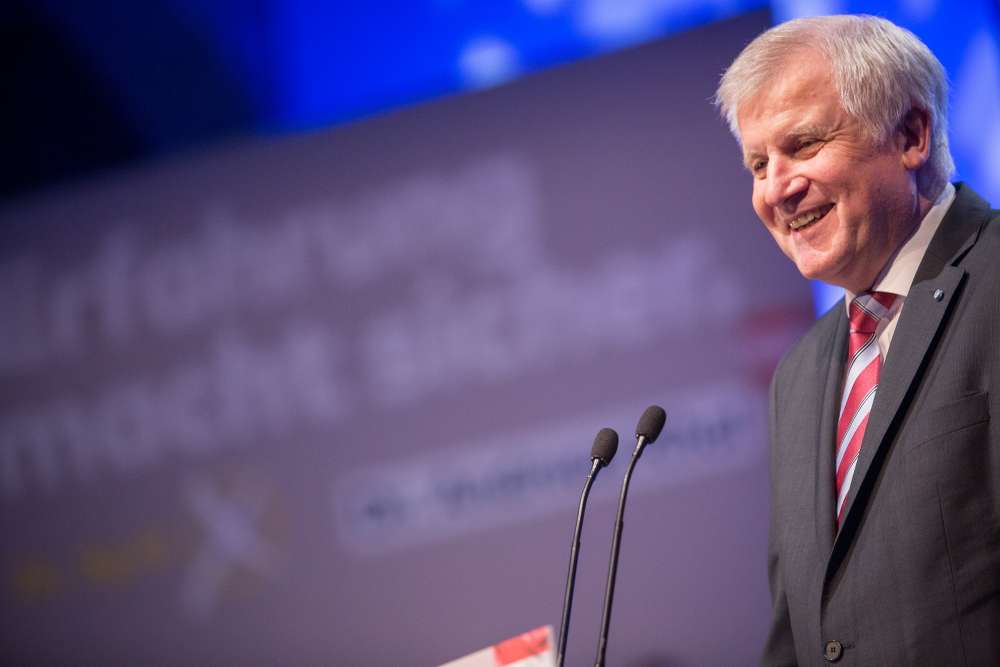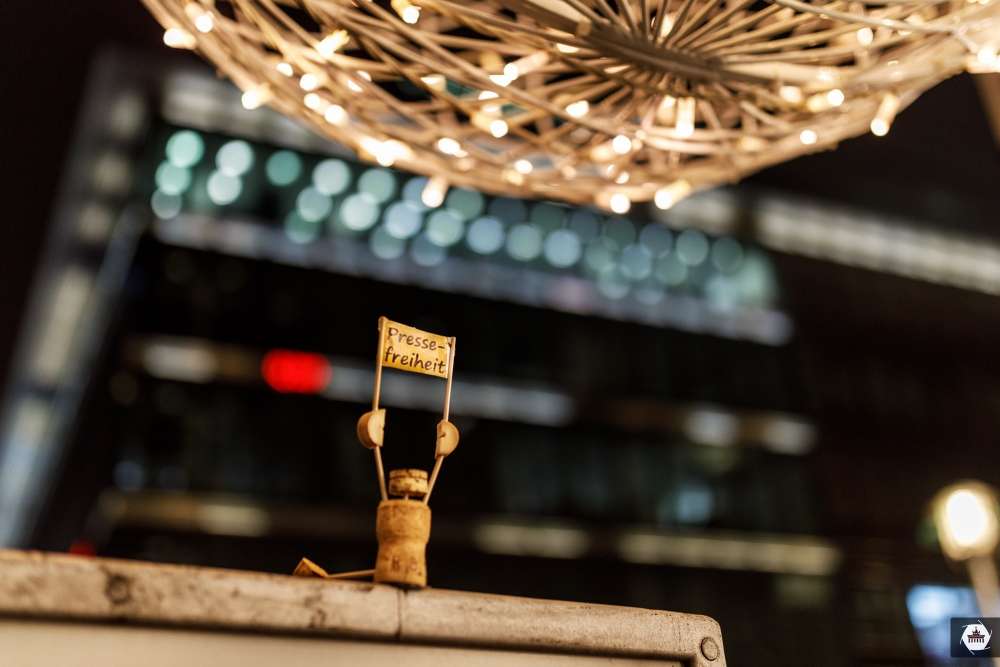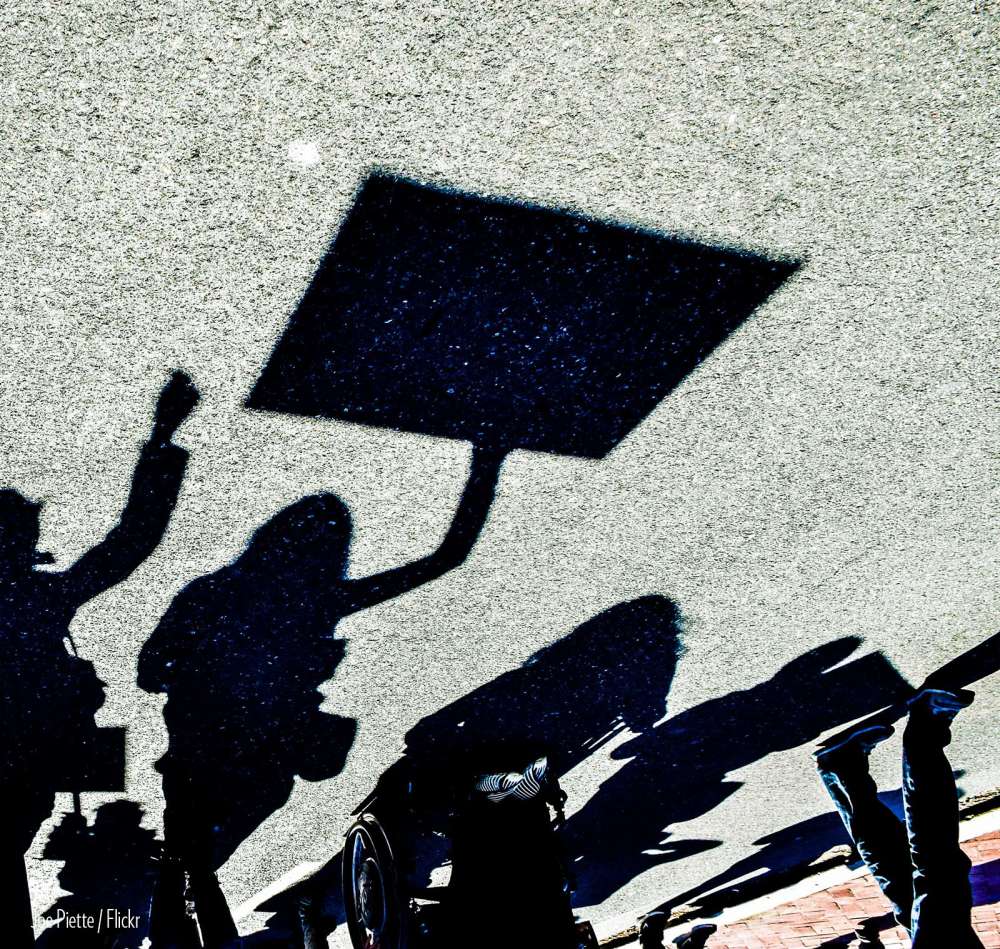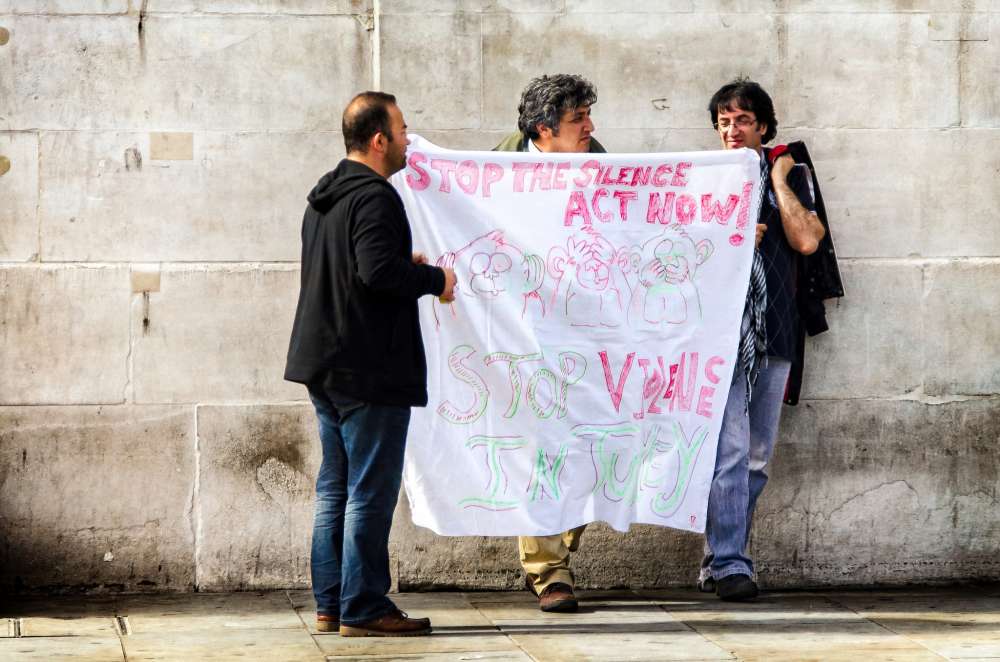What Germany Can Do For Imprisoned Saudi Blogger Raif Badawi
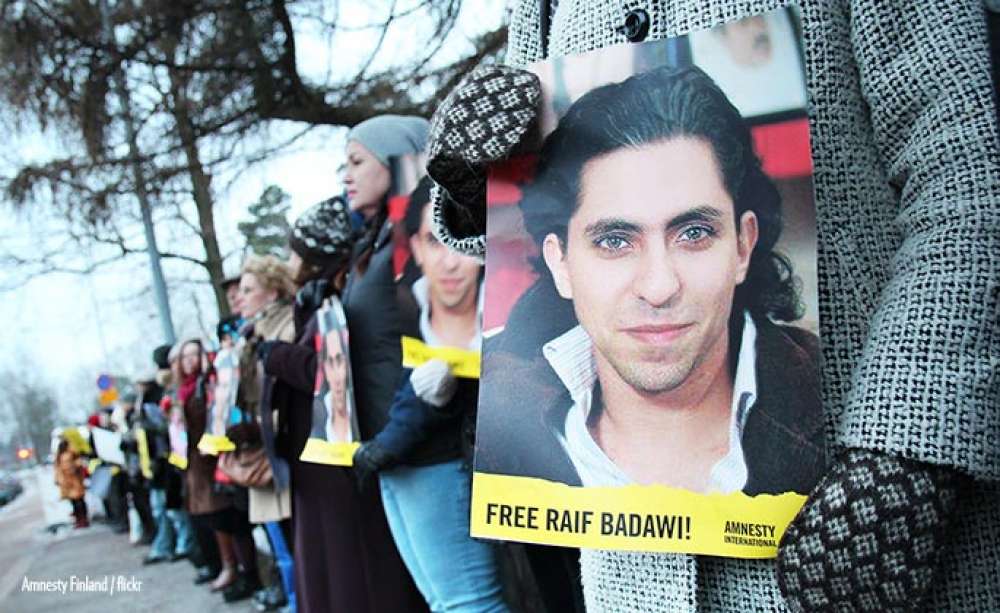
Public outrage over the imprisonment of Saudi Arabian blogger Raif Badawi has born first fruits. In 2014, the 31-year-old internet activist was sentenced to 10 years imprisonment with 1,000 lashes. Thanks to international outcry, the flogging was recently suspended.
As the media uproar fades, Badawi’s safety will decrease. To protect him, international focus on his case must be preserved. Yet, it is unlikely that the case of the imprisoned blogger will occupy headlines much longer. After all, variation is the principal law of the front page. Rather than journalists, it is politicians and diplomats who now have to take over.
But do foreign representatives have any influence on Badawi’s case? Consider the case of Germany: Neither Chancellor Merkel’s diplomatic efforts over the phone nor Vice Chancellor Gabriel’s personal pleadings in Riyadh were able to achieve an early release from prison. When even the most prominent politicians seemingly fail, what then can members of parliament or lower-ranking government officials hope to achieve? While understandable, such skepticism is inadequate, as similar cases show. Germany’s efforts in the Badawi case should not focus initially on a possible release. Instead, representatives should work towards improving Badawi’s imprisonment conditions while at the same time pressuring Riyadh to abolish flogging altogether.
Pardons are Rare
While human rights diplomats and activists regularly address individual cases, pardons are extremely rare. A very early involvement from abroad, usually even before a sentence is passed, can in some cases lead to a release. But when the verdict has already been delivered, as in Badawi’s case, an early release is tough to negotiate and usually only becomes viable halfway through the detention.
For now, Badawi still faces the lion’s share of a 10-year prison sentence. If the authority’s cost-benefit-calculations behind Badawi’s incarceration change significantly, an early release may be possible. But at this stage, from the perspective of the Saudi Arabian crown, Badawi is better behind bars. His website on politics and religion provoked the ruling powers in Riyadh. The punishment not only silences a potentially dangerous government critic; it acts as a deterrent for other opposition members. Hence, for the Saudi leadership, which intends to maintain power, the imprisonment of Badawi remains favorable. Even the possibility of releasing the prisoner to exile is problematic from this perspective – and this is precisely why an early release is difficult to obtain at this moment.
Nonetheless, the costs for the Saudi crown are much larger than expected. Flogging is a common punishment in Saudi Arabia, usually attracting little international attention. That seemed to change with Badawi. Unlike most other Saudi Arabian political prisoners, he profited from an unusually forceful public outcry. Badawi became a VIP prisoner.
To date, diplomatic efforts, including those by the German chancellor and vice-chancellor, have been successful even though no deal for an early release has been brokered. Only the international pressure that has escalated the previous weeks can explain the suspension of Badawi’s flogging after 50 of 1,000 total lashes. Still, there is the chance that the lashing resumes once public attention turns elsewhere. Precisely because of the authority’s loss of face, Badawi’s punishment could then take even more brutal forms.
What Germany Can Do
In human rights diplomacy, those who yell first and look the other way later act recklessly. Germany must therefore continue to take a stand for Badawi’s rights. The German embassy in Riyadh can regularly ask for reports on Badawi’s prison conditions, and every politician who travels to Saudi Arabia can apply for a prison visit. Unfortunately, regularly voicing concern for the well-being of political prisoners when traveling abroad does not correspond with the current practice of German members of parliament. Politicians from other countries are usually more adept in this regard. From their experiences we know that such efforts, when consistent and vigorous, are worthwhile and often have a positive impact.
Politicians are usually only willing to turn towards such difficult topics during international trips when they are able to score points with their voters back at home. In principle then, every citizen matters. Anyone can reach out to their representative and ask: Are you going to Saudi Arabia any time soon? If yes, will you try to visit Raif Badawi in prison?
Sadly, Badawis case is not an isolated incident. Germany’s efforts in support of political prisoners in Saudi Arabia should transcend the individual level. With the practice of flogging, Saudi Arabia acts in violation of the United Nations Convention Against Torture, which it ratified in 1997. Germany is a signatory too. That means that Germany even has a legal obligation to ensure that all treaty members are in compliance. Riyadh’s accusation of interference in internal affairs can be confidently rejected by any foreign representative who talks about Badawi during bilateral talks.
As a signatory of the anti-torture convention, Saudi Arabia is also obligated to report regularly to the treaty committee in Geneva about the implementation of all obligations under the convention. In early 2016, it will be Riyadh’s turn again. That is, the new king Salman ibn Abd al-Azizzu has exactly one year to abolish the cruel, inhuman and degrading flogging practice.
…
A German version of this commentary appeared on ZEIT Online on March 24, 2015.


